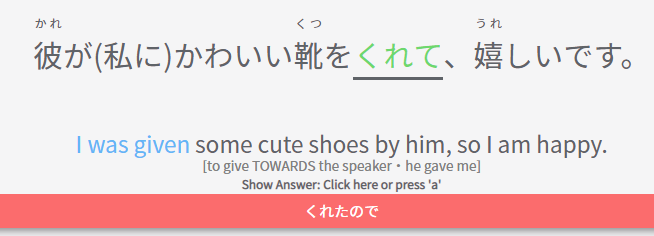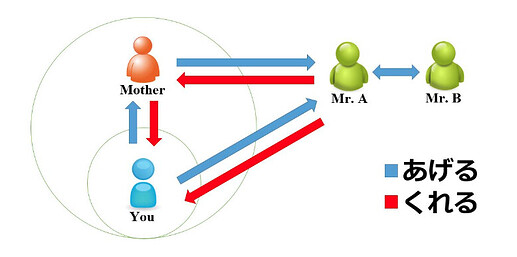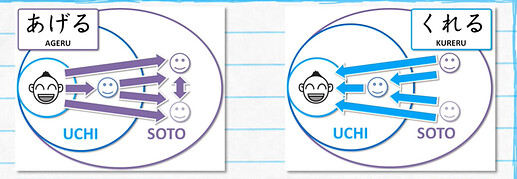to give (me), to be given
Structure
- Giverは・が + Recipientに + Nounを くれる
- Recipientに + Giverは・が + Nounを くれる
- Giverは・が + Nounを + Recipientに くれる
 For both くれる and あげる, に marks the recipient. If you want to express act of giving something to someone outside of your inner circle use あげるinstead.
For both くれる and あげる, に marks the recipient. If you want to express act of giving something to someone outside of your inner circle use あげるinstead.
[くれる describes something being given to you or someone inside your inner circle from someone outside it]
[くれる → To give towards the speaker・あげる → To give away from the speaker]
[Only used if the result is desirable・If the context is clear, both the giver and the receiver can be omitted]
additional reading:





